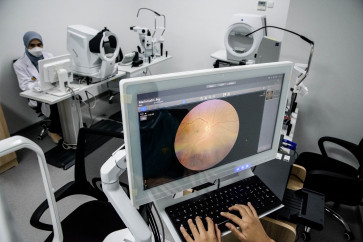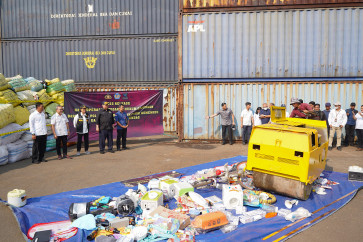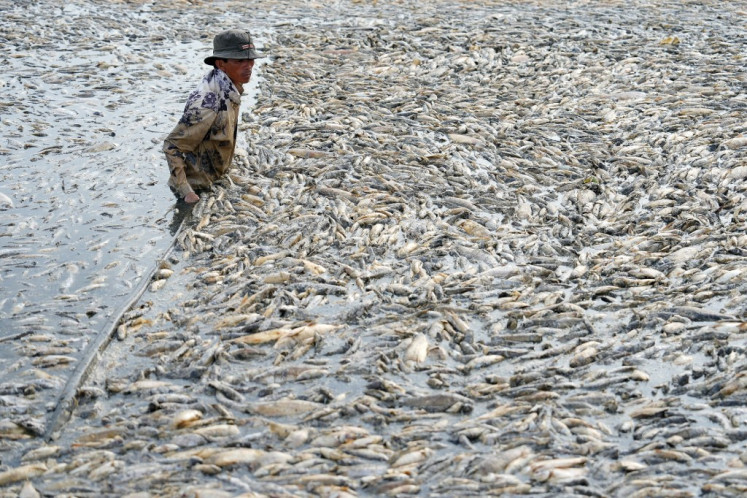Govt to release transgenic seeds in 2012
Deputy Agriculture Minister Bayu Krisnamurthi said Friday that the government will be releasing genetically modified organisms (GMO), in the form of transgenic corn and sugarcane seeds, in 2012
Change Size

D
eputy Agriculture Minister Bayu Krisnamurthi said Friday that the government will be releasing genetically modified organisms (GMO), in the form of transgenic corn and sugarcane seeds, in 2012.
Two state firms will issue the seeds following the signing on Oct. 5 of the Agriculture Minister’s regulation No. 61/2011, allowing for the establishment of a transgenic system.
“[State plantation firm] PT Perkebunan Nusantara and P3GI [the Indonesian Sugarcane Plantation Research Center] will supply the transgenic seeds,” Bayu told reporters at his office, refuting speculation that foreign companies might monopolize the supply of seeds.
“We hope in the future even more local companies will be involved.”
A transgenic system, which consists of an organism whose genetic material is altered by genetic engineering techniques, has evoked strong concerns as to whether its implementation will result in negative side effects both for the environment and for those people who consume the end product.
The ministry’s research and development agency head, B. Haryono, tried to calm fears by saying that before planting the seeds, the ministry’s laboratory team will conduct a planting trial over several months.
“Within a year, we would be able to reassure the public that the chemical contents in transgenic seeds would not produce negative side effects either to the environment or to human health,” Haryono told The Jakarta Post over the telephone on Sunday.
Furthermore, he said that a transgenic system was necessary as Indonesia needed a new technology to anticipate the anticipated changes in harvest quality due to climate change.
“A transgenic system would create plants containing vitamins and resistance against certain diseases, which non-transgenic system plants would not have,” he said.
However, he denied, when asked, that the transgenic system was one of the government’s ways toward achieving national food security.
“We do not intend to use the transgenic system to increase production because that would take many years. We cannot really predict that,” he said.
“A transgenic system normally relates to a plant’s resistance. Therefore, at this moment, we are focusing on the improvement of plant quality.”
Separately, Bustanul Arifin, an agriculture analyst from Lampung University, told the Post that the Commission on Biological Safety should check and analyze whether the transgenic system was safe enough for the environment and human health.
The chairman of the Indonesian Farmers’ Union (SPI), Henry Saragih, said transgenic seeds would eliminate the need for seed-producing farmers, as production would rely on laboratories.
“Although producer companies are state-owned, farmers are made completely dependent,” Henry said in an email from Rome, adding that so far no research has been able to guarantee the safety of transgenic plants for consumption.
“Transgenic areas will also pollute non-transgenic areas located around them,” he said, adding that the SPI would try to maintain production of local seeds by farmers.
Lutfiyah Hanim from the Third Network said that what local farmers needed was to be independent from foreign influence.
“At this moment, their profits are very small. At the same time, they need to rent land and buy seeds,” she said over the phone.
Lutfiyah said that one kilogram of corn hybrid seeds cost Rp 40,000 (US$4.52), with one hectare of land needed for every 25 kilograms of seeds.
“If a farmer buys from another farmer, they would only spend Rp 17,000 per kilogram. At this point, I am sure that transgenic seeds would be much more expensive even than hybrid seeds,” she said. (fem)









